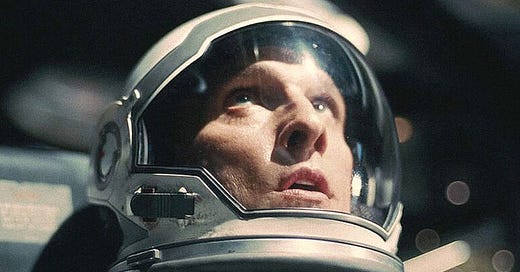This is Clusterhuck, my newsletter about faith, culture and a flourishing future for all! I’m glad you’re here. I can only do this through the support of my readers, and I’m grateful for every one I’ve got. If you’d like to join, just click here. You’ll get a free seven-day trial, including access to all the archives.
You cannot change the past. Brand lays it out for Cooper as starkly as possible after their catastrophic visit to Miller’s planet. Even the multidimensional beings they suspect of communicating with them have to accept that history is cast in iron. Every decision, every mistake, comes with a price that must be paid.
And yet.
And yet Interstellar suggests that while the past cannot be changed, it can be redeemed. We can take actions today that will transform the trajectory of the past. The past can’t be undid, the price can’t go unpaid, but it can be justified, vindicated and maybe, if we’re a little lucky, a means of salvation for the future.
I was raised in the “Finding God in ___________” era of Christian writing. I’ve written more of these pieces than I care to admit, and edited oodles more. At its peak, it involved some of the most absurdly acrobatic justifications imaginable (“You can find God in Game of Thrones because it shows us how destructive sin is!”) which resulted in some pretty anemic writing that was pretty clearly just a Christian college kid’s attempt at an excuse for writing about something he (I) liked. I’ve had my fill of “Finding God in ________” pieces.
But it’s not hard to find God in Interstellar, even though it's a bracingly humanist text. Interstellar understands the economy of sacrifice, the way it’s simple math until it isn’t. We don’t quite understand the way time warps around redemption but, as Brand observes, there are other forces at work in the universe besides time.
Keep reading with a 7-day free trial
Subscribe to clusterhuck to keep reading this post and get 7 days of free access to the full post archives.





